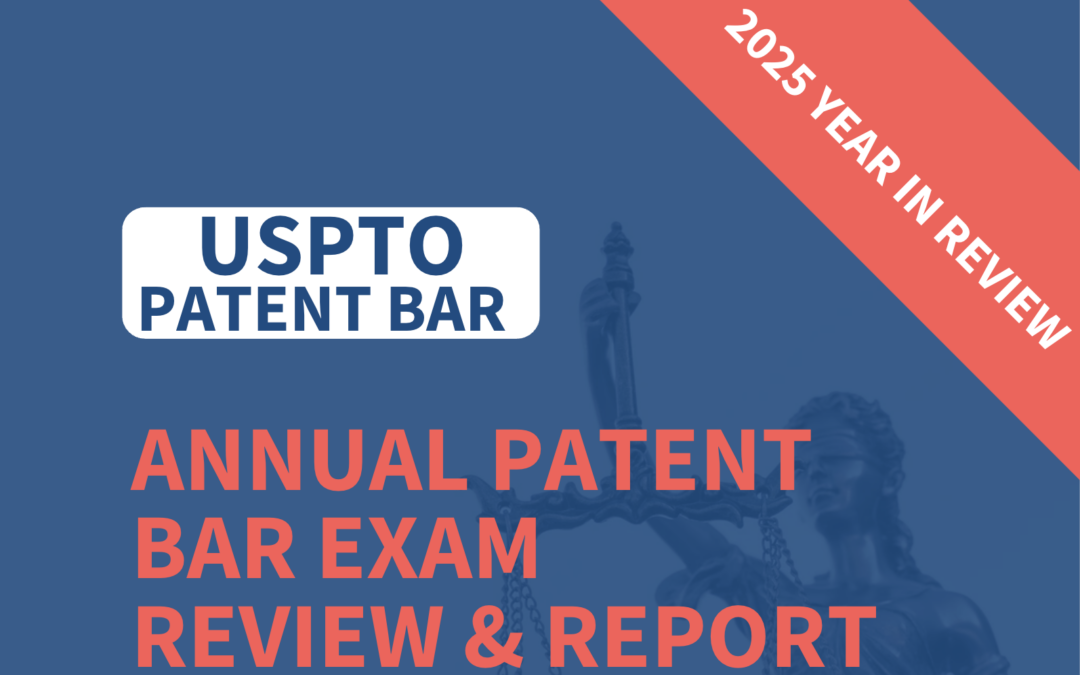Keyword advertising is a crucial component of digital marketing strategies. It allows businesses to target specific keywords and display relevant ads to potential customers who are searching for those keywords online. In this article, we will delve into the world of keyword advertising, exploring its importance, the role of patents, and the impact of the Patent Bar.
Understanding Keyword Advertising
The Basics of Keyword Advertising
Keyword advertising involves bidding on specific keywords or phrases to display targeted advertisements. When a user searches for a particular keyword, the search engine displays ads that are relevant to their search query. This allows businesses to reach potential customers at the moment when they are actively searching for products or services.
Keyword advertising has revolutionized the way businesses promote their products and services online. It provides a highly targeted and cost-effective way to reach a specific audience. By bidding on keywords that are relevant to their business, companies can ensure that their ads are displayed to users who are most likely to be interested in what they have to offer.
When it comes to keyword advertising, businesses must carefully select the keywords they bid on. It’s important to choose keywords that are relevant to the products or services being offered and that have a high search volume. By targeting the right keywords, businesses can maximize their visibility and increase the chances of attracting potential customers.
For example, if a user searches for “best running shoes,” companies that have bid on this keyword will have their ads displayed on the search results page. This form of advertising provides businesses with a highly targeted and cost-effective way to reach their target audience. By displaying ads to users who are actively searching for running shoes, companies can increase the likelihood of generating sales and conversions.
The Role of Keyword Advertising in Digital Marketing
Keyword advertising plays a pivotal role in digital marketing strategies. It allows businesses to increase their online visibility and reach their target audience more effectively. By bidding on relevant keywords, businesses can ensure that their advertisements are displayed to users who are most likely to be interested in their products or services.
In today’s digital landscape, where competition for online visibility is fierce, keyword advertising provides businesses with a powerful tool to stand out from the crowd. By strategically bidding on keywords, businesses can position themselves in front of their target audience, increasing brand awareness and driving traffic to their websites.
Additionally, keyword advertising enables businesses to track the performance of their ads. They can measure the number of clicks, conversions, and other metrics to evaluate the success of their campaigns. This data-driven approach helps businesses optimize their advertising efforts and improve their return on investment.
By analyzing the performance data, businesses can make informed decisions about which keywords to bid on, how much to bid, and how to refine their targeting. This iterative process allows businesses to continuously improve their keyword advertising campaigns, ensuring that they are always reaching the right audience with the right message.
Furthermore, keyword advertising can complement other digital marketing strategies such as search engine optimization (SEO) and content marketing. By aligning keyword advertising with SEO efforts, businesses can create a cohesive online presence that drives organic and paid traffic to their websites. This integrated approach maximizes the impact of digital marketing efforts and helps businesses achieve their marketing goals.
In conclusion, keyword advertising is a powerful tool in the digital marketing arsenal. It provides businesses with the ability to reach their target audience at the right moment and in a highly targeted manner. By strategically bidding on relevant keywords, businesses can increase their online visibility, drive traffic to their websites, and ultimately, boost their sales and conversions.
Delving into the Patent Aspect
The Importance of Patents in Keyword Advertising
Patents play a crucial role in protecting intellectual property, including keyword advertising strategies. Securing a patent for a unique keyword advertising method prevents competitors from using similar strategies, giving businesses a competitive advantage in the market.
Not only do patents provide legal protection, but they also offer businesses the opportunity to monetize their innovative keyword advertising strategies. By obtaining a patent, businesses can license their patented method to other companies, generating additional revenue streams and establishing themselves as industry leaders.
Furthermore, patents serve as a powerful tool for businesses to assert their rights in cases of infringement. If a competitor attempts to use a patented keyword advertising strategy without permission, the patent holder can take legal action and seek damages, thereby safeguarding their investment and deterring others from engaging in unauthorized use.
How to Patent a Keyword Advertising Strategy
Obtaining a patent for a keyword advertising strategy involves following a specific process. First, a thorough search and analysis of existing patents are conducted to ensure that the strategy being patented is unique and not already protected by someone else’s patent.
During the search, it is essential to consider not only patents directly related to keyword advertising but also those in related fields. This comprehensive analysis helps identify any potential obstacles or prior art that may affect the success of the patent application.
Once the uniqueness of the strategy is established, a patent application is drafted, outlining the details of the keyword advertising method and its novelty. The application should include a comprehensive description of the strategy, including its technical aspects, implementation steps, and potential benefits.
Additionally, it is crucial to provide supporting evidence and examples that demonstrate the effectiveness and uniqueness of the keyword advertising strategy. This evidence can include data on improved click-through rates, conversion rates, and overall return on investment compared to existing advertising methods.
After the application is drafted, it is submitted to the relevant patent office, where it undergoes a review process. During the review, patent examiners evaluate the application’s compliance with patent laws and assess the novelty and inventiveness of the claimed keyword advertising strategy.
If the application meets all the requirements and passes the examination, a patent is granted. The patent holder then receives an exclusive right to use, license, or sell the patented keyword advertising strategy for a specified period, typically 20 years from the filing date.
It is important to note that obtaining a patent can be a complex and time-consuming process. It requires a deep understanding of patent laws and regulations, as well as the ability to clearly articulate the unique aspects and advantages of the keyword advertising strategy in the patent application.
In conclusion, patents are invaluable assets for businesses in the realm of keyword advertising. They provide legal protection, enable monetization opportunities, and serve as a deterrent against unauthorized use. By following the proper procedures and demonstrating the uniqueness of their strategies, businesses can secure patents that safeguard their investments and give them a competitive edge in the dynamic world of digital advertising.
The MPEP and its Impact on Keyword Advertising
An Overview of the MPEP
The MPEP, or Manual of Patent Examining Procedure, is a comprehensive guide published by the United States Patent and Trademark Office (USPTO). It provides detailed guidelines for the examination of patent applications and the granting of patents.
For keyword advertising, the MPEP serves as a valuable resource for patent examiners in evaluating the patentability and novelty of keyword advertising strategies. It helps ensure consistency and uniformity in the examination process, providing clarity and guidance to both examiners and patent applicants.
The MPEP’s Guidelines for Keyword Advertising Patents
The MPEP outlines specific requirements that keyword advertising strategies must meet to be eligible for a patent. It emphasizes the need for innovation and non-obviousness, meaning that the strategy must be significantly different from existing advertising methods and not obvious to someone skilled in the field.
Additionally, the MPEP provides guidance on the disclosure of the strategy in the patent application. It emphasizes the importance of clearly describing the unique aspects of the keyword advertising method, enabling others skilled in the field to understand and replicate the invention.
Navigating the Patent Bar for Keyword Advertising
Preparing for the Patent Bar Exam
The Patent Bar Exam is a professional examination that individuals must pass to become registered patent agents or attorneys. These professionals can represent clients in patent matters before the USPTO.
For individuals interested in practicing patent law related to keyword advertising, it is essential to thoroughly prepare for the Patent Bar Exam. This involves studying patent laws, procedures, and regulations, as well as familiarizing oneself with key cases and legal principles related to keyword advertising.
The Patent Bar and Keyword Advertising: A Case Study
To better understand the relationship between the Patent Bar and keyword advertising, let’s examine a hypothetical case study.
Imagine a digital marketing agency that develops an innovative and highly effective keyword advertising strategy. To protect their intellectual property and gain a competitive edge, they decide to patent their strategy. They hire a registered patent attorney experienced in keyword advertising to navigate the Patent Bar and guide them through the patent application process.
The attorney’s expertise in patent law and their understanding of the MPEP helps them draft a strong patent application that meets the requirements outlined by the USPTO. They successfully obtain a patent for the agency’s keyword advertising strategy, positioning the agency as a leader in the industry.
The Future of Keyword Advertising and Patents
Emerging Trends in Keyword Advertising
Keyword advertising continues to evolve, adapting to changing technologies and consumer behavior. One emerging trend is the use of artificial intelligence and machine learning to optimize keyword bidding strategies and improve ad targeting.
As AI algorithms become more sophisticated, businesses can leverage these technologies to analyze vast amounts of data and make real-time adjustments to their keyword advertising campaigns. This enables them to deliver even more personalized and relevant ads to their target audience, enhancing the effectiveness of their marketing efforts.
How Changes in Patent Law Could Affect Keyword Advertising
Patent law is an ever-evolving field, subject to changes and updates to keep up with technological advancements and societal needs. Changes in patent law could impact keyword advertising strategies, affecting how businesses protect their intellectual property and enforce their patent rights.
For example, new legislation or court rulings may redefine the criteria for patentability or introduce additional requirements for patent applications related to keyword advertising. It is crucial for businesses and legal professionals to stay updated on these developments to ensure compliance and effectively navigate the patent landscape.
In conclusion, keyword advertising plays a pivotal role in digital marketing, allowing businesses to reach their target audience more effectively. Patents protect innovative keyword advertising strategies, providing businesses with a competitive advantage. The MPEP serves as a valuable resource for evaluating the patentability of keyword advertising methods, while the Patent Bar ensures that qualified professionals can navigate patent law effectively. Looking ahead, emerging trends and changes in patent law will shape the future of keyword advertising and its legal landscape.











